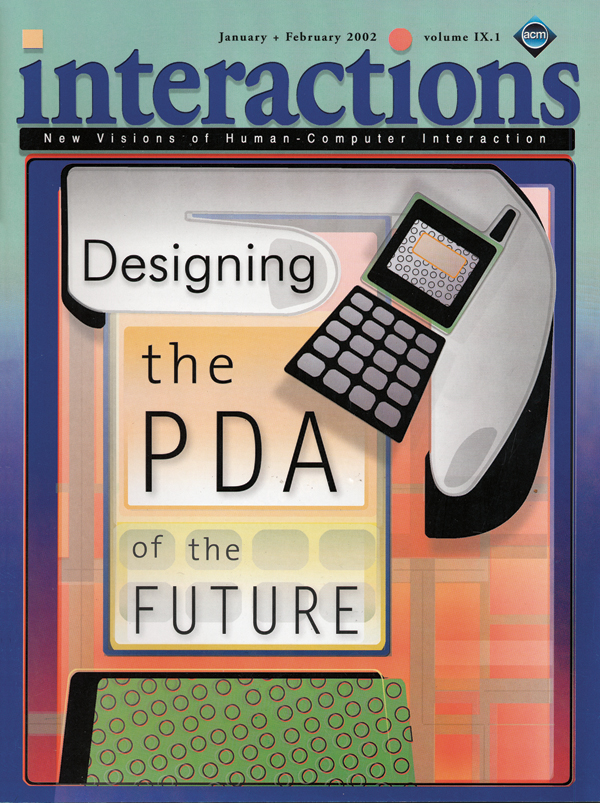Authors:
Steven Pemberton
Happy new year!
Maybe I'll be the first to tell you: 2002 is the 20th anniversary of the watershed Gaithersburg conference on Human Factors in 1982 that led to the founding in the same year of SIGCHI, the Special Interest Group on Computer Human Interaction. Since then about 13 cycles of Moore's Law have occurred. In other words computers are around 8,000 times faster (at the same price).
Although Moore's law is normally expressed as "computer power doubles at constant cost every 18-24 months" (actually he only referred to number of transistors, but it turns out to be close enough), I prefer the alternative description: Every 18 to 24 months we produce more computing power than the sum total computing power that has existed up to that point.
Since 1982 we have had some paradigm shifts: Memory has dropped enough in price and computer power has risen enough to allow us to have graphical interfaces. At the same time, networks have dropped enough in price to allow us all to interconnect. The number of computer users has literally risen exponentially. I only wish that my productivity had risen exponentially in the same period, particularly my ability to write computer programs (which still largely seems to be written in the same languages as 1982).
Will wireless connectivity represent a similar paradigm shift in the way we work with computers? I am inclined to think it will, especially after recent visits to Tokyo and seeing how people use their mobile devices there. In this issue Aaron Marcus and Eugene Chen take us through the research and design of interfaces for future mobile devices, as they say "the first truly 'personal' computers."
In 20 years time, we will be able to look back at today, with our large, pathetically slow computers, our miserably low-resolution screens, our paltry low-capacity disks, our pitiful bandwidth, and think "if only we had known."
Steven Pemberton
[email protected]
©2002 ACM 1072-5220/02/0100 $5.00
Permission to make digital or hard copies of all or part of this work for personal or classroom use is granted without fee provided that copies are not made or distributed for profit or commercial advantage and that copies bear this notice and the full citation on the first page. To copy otherwise, to republish, to post on servers or to redistribute to lists, requires prior specific permission and/or a fee.
The Digital Library is published by the Association for Computing Machinery. Copyright © 2002 ACM, Inc.








Post Comment
No Comments Found